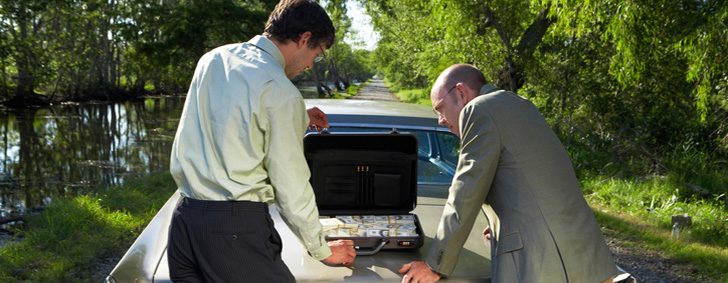
Car Selling Scams
Selling a car should be a straightforward process that involves finding a suitable buyer and then working out the terms of sale. However, there are some dishonest people out there, so you should know how to defend yourself against many common buyer scams.
Selling Sight Unseen
An overly eager buyer who doesn't care about the condition of the vehicle is the classic red flag. This may indicate a scammer who plans take off with your car without paying. Someone may give you a check that bounces after the vehicle is long gone or promise to wire you the payment after leaving with the car.
It's safer to wait for all checks or other payments to completely clear before you transfer ownership of your vehicle. Keep in mind that just because your account may be credited within a few days for the full amount of the deposited check doesn't necessarily mean that it is backed by sufficient funds at the issuing financial institution. You can ask your bank to directly contact the buyer's financial institution to verify that the associated checking account contains enough money to cover the full amount.
Fraudulent Money Orders or Cashier's Checks
The availability of high-resolution color copiers has led to an epidemic of fraudulent money orders and cashier's checks being produced.
Before selling your car, you should confirm that the buyer's money order or cashier's check has been issued by a reputable financial institution. Call the company's national telephone number to verify that the payment method is genuine and good for the listed amount.
Shady Escrow Services
While reputable escrow services can be an excellent option for buying and selling cars with confidence, there are fraudulent enterprises out there that only pretend to engage in these transactions. These shady outfits typically work in cahoots with crooked buyers to trick innocent sellers into parting with their vehicles before discovering that the payment has disappeared.
Honest escrow services invariably have long-established reputations that can be verified through the Better Business Bureau. You can search for the keywords "scam" or "fraud" in connection with the name of an unfamiliar escrow service. If a prospective buyer insists on using an obscure company, you'll probably be better off walking away from the deal.
Shifty Payment Schemes
While the above-mentioned scams account for a substantial percentage of fraudulent transactions, there are several other methods crooks can use. You should be wary of these commonly used scams:
- Installment plans.
- Your buyer may intend on stopping further payments after securing the title to your vehicle.
- Delayed payments.
- A buyer might lie and claim someone owes them more money than the price of your car, promising that you'll receive payment from this supposed third party after the vehicle has been transferred.
- Cross-border shipments.
- A dishonest buyer might promise to pay you more money later to cover the cost of shipping your vehicle to another state or even another country.
Attempted Identity Theft
It's so easy to become caught up in the mindset of selling your vehicle that you might miss suspicious behavior. Some prospective buyers might not want to buy your vehicle at all but rather sneakily draw out the sort of private information sought by identity thieves.
No legitimate car buyer ever needs to know your Social Security number, and sharing your private bank account or credit card number with a buyer is risky even if he or she claims to need it in order to pay you via wire transfer. If a prospective buyer isn't personally known to you, you might consider ruling out wire transfers entirely.
Sensible Safety Tips
Regardless of the circumstances that have led you to sell a car, you should protect yourself at all times. Taking the following steps will help to protect you against scammers and frauds:
- Verify the buyer's identity.
- Don't be afraid to ask to see a valid driver's license before allowing a test drive or otherwise proceeding any further with the transaction. You should always know with whom you're dealing.
- Never agree to meet an unknown buyer at your residence. Instead, insist on getting together at a public place with witnesses.
- Document everything carefully.
- Keep a complete record documents and notes that may be needed
later for a police investigation or lawsuit, such as:
- Names.
- Telephone numbers.
- Street and mailing addresses.
- The buyer's financial information and any other details that seem relevant. Photocopy all signed documents and keep the originals in a fireproof safe or other secure location.
- Keep a complete record documents and notes that may be needed
later for a police investigation or lawsuit, such as:
- Obtain a signed bill of sale and liability release to avoid potential legal liability for the buyer's behavior after you sell the car.
- Protect your private information.
- Don't forget to remove or black out any private information in vehicle service records and other papers that could be abused for identity theft.
- Listen to your gut.
- An uneasy feeling in your gut may tip you off that a purported buyer likely isn't on the level. You'll undoubtedly feel better moving on to another potential buyer.
In spite of what may sound like a virtual jungle of scam artists waiting to steal your vehicle or even threaten your safety, the great majority of potential buyers are honest. Fraud artists typically seek easy prey and will quickly run away from people who clearly understand how to safely sell a car.